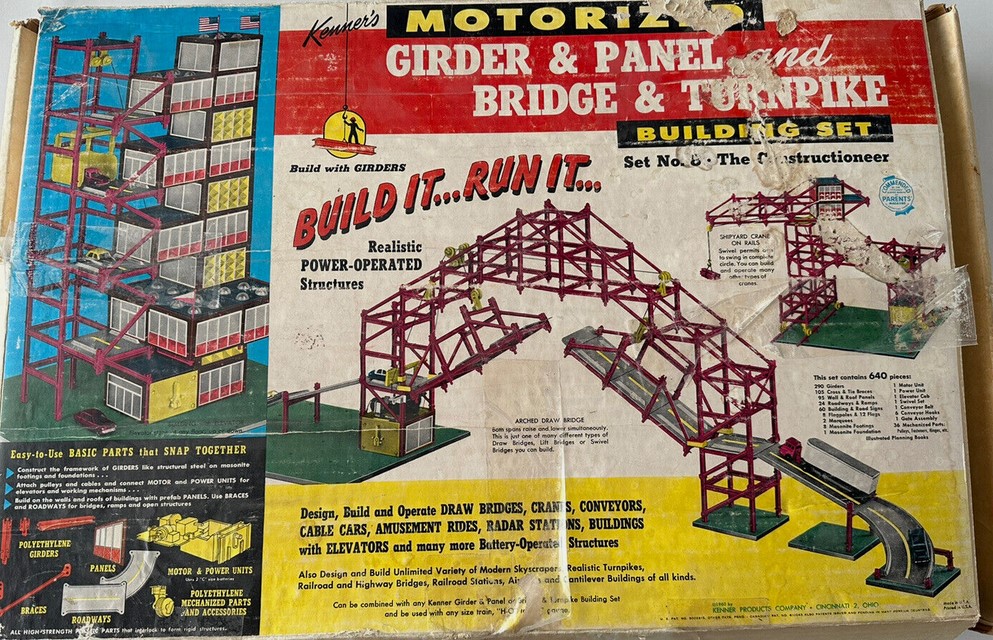Thinking on Your Own – Part 4: Building Toys to Makerspaces (Activities to Build Reasoning, Problem Solving and Critical Thinking Skills)

This is the fourth of a five part blog series in which we're reviewing educational activities that should be introduced (and strongly emphasized) for paradigm shifting increases in reasoning, problem solving and critical thinking skills. We covered Chess and Complex Board Games in part one. We covered Speech and Debate in part two. We covered Coding - Learning to Code and Studying Computer Science in part three. Today we're covering the benefits of progressing the continuum from Building Toys to Makerspaces. We’ll also be covering Sports in last blog post of this series. But let's set the stage for why we're pursuing this blog series in the first place.
We live in the most abundant period of human history. But that doesn’t mean our problems are all solved or that everything is easy. Every day we face a flood of information, misinformation and disinformation. And with even a moderate level of perspective we should be grateful for what we have, yet realize how much is uncertain - or simply not known. Skills that aid in navigating these waters are paramount.
Education is classically described as “learning how to learn,” or that a great education “prepares you for a lifetime of learning.” Being able to “think” or to “think on your own” has never been more important. Three core components of thought are reasoning, problem solving and critical thinking skills. So let's dive in to the progression from Building Toys to Makerspaces.
Building Toys to Makerspaces
Here are five thoughts on Making:
- Making things (or being a maker) requires creativity, curiosity and deep understanding.
- Making things takes many forms, so it requires developing passions, learning skills, assembling tools and curating a Makerspace.
- Making things is incredibly fulfilling, with the ultimate fulfillment being satisfaction with the process of making and the joy and ease that one's creation brings to the lives of others.
- Making things is inherently productive - you are making something, not merely being consumptive of finished goods.
- Making things well gets complex - success or failure is determined by the quality of your reasoning, problem solving and critical thinking skills. The extent of those skills and your experience determine/limit the quality of your process, the capability/limits of your makerspace, and your satisfaction and fulfillment.
Starting in childhood, as we develop our understanding of the preceding five points, we inherently and explicitly focus on them - skills and experience stack up. And to the theme of this five part series, these pursuits greatly accelerate the development of reasoning, problem solving and critical thinking skills.
Giving Them the Push...
It's a long way from playing with Montessori stacking rings to being self aware of your Makerspace as mature Maker.
How do you educate someone to "give them the push," the nudge, to start down this path - whether or not they pursue a career as an engineer, builder, artist, farmer, cook (or any other profession involving the making of things)?
It's quite easy - give them the right toys and time to play:
As a child I spent hours playing with wood blocks, Lincoln logs and other "Building Toys." As I got older, the toys become more complex - like the Bridge and Girder set pictured at the top of this blog. As time passed, these progressed to HO trains and being more involved in my dad's shop in the garage. In high school, my making evolved to RC airplanes.
By the time I was in engineering school I had the right foundation to really take advantage of what my course of study had to offer. Later in life and with a family, making has at times been more hobby and at times been more profession. I've curated a more capable Makerspace at every step of the journey. Now with 3D printers and a shop full of equipment, I can (and do) make/fix/improve just about anything.
But that's me - how repeatable is my experience? Very. I have a daughter whose adult idea of making things has been to take engineering design jobs in companies making nuclear submarines and commercial airplanes. Her journey started with Duplo blocks, progressed to Legos and then Erector sets, and then being more exposed to my shop and HO trains as she got older - always with unlimited free play.
Maybe twice is just coincidence? I think not - I now have a toddler granddaughter who is mesmerized by her extensive collection of Montessori toys. Her joy and curiosity seem unlimited. She just needed the push - some building toys and plenty time to play with them.
Here’s your takeaway:
Making things has great value: it's highly fulfilling; it's productive and not consumptive; and it develops great reasoning, problem solving and critical thinking skills. The roadmap to being a mature Maker and curating one's own Makerspace starts early on with "Building Toys" and plenty of time to play with them. After that, things progress naturally as nurtured.
Up Next: Sports
In our final blog of this series, we’ll cover the benefits of youth sports and how game scenarios and working in team environments can build reasoning, problem solving and critical thinking skills. But you don’t need to wait for me! Feel free to research ahead on your own and make progress teaching reasoning, problem solving and critical thinking skills through participation in Sports.
Guest Blogger:
Bill Franklin, the CEO of Internet4Classrooms, is our guest blogger this month. He has been on the faculty at The George Washington University, has years of platform instructional experience, was a career Army Special Operations officer and also has decades of experience as a youth sports coach.
Search Internet4Classrooms

Custom Search






